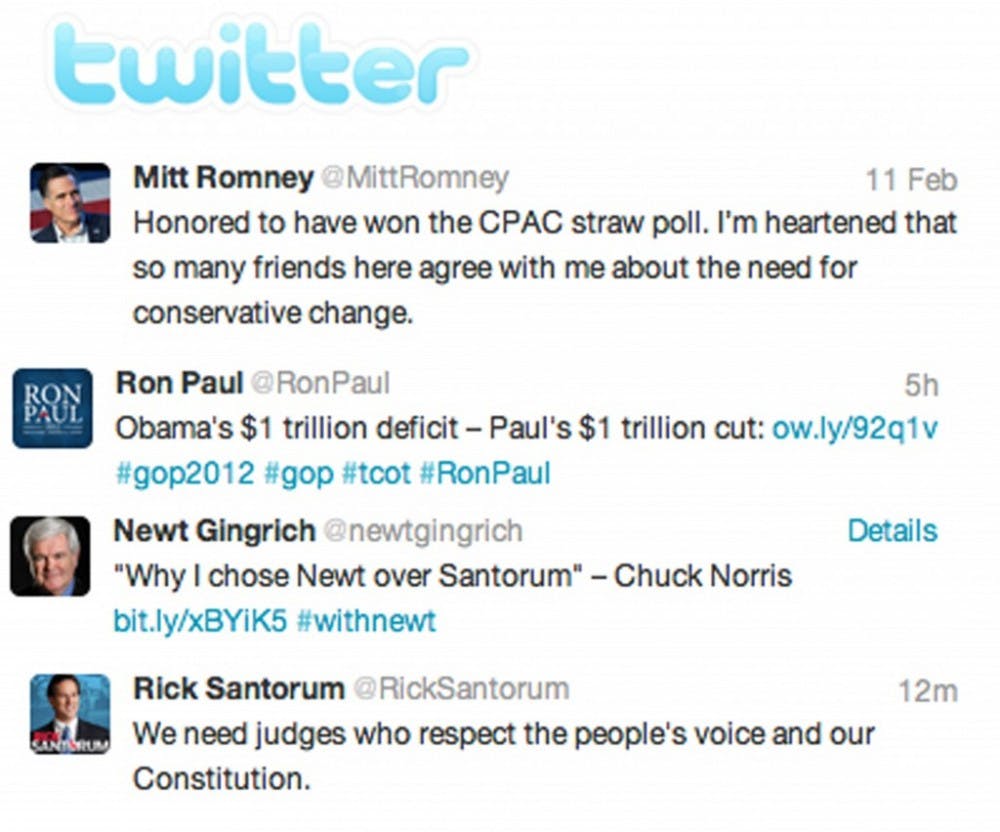 In today’s digital era, almost everyone is a part of social media. Sites such as Facebook and Twitter have become a necessary component of any campaign.
In today’s digital era, almost everyone is a part of social media. Sites such as Facebook and Twitter have become a necessary component of any campaign.
A majority of students at Elon University use some form of social media on a daily basis and the creation of a social media campaign is rapidly becoming inevitable if candidates want to reach voters on college campuses.
Presidential hopefuls are recognizing the effectiveness of social media campaigns. In the upcoming presidential election, candidates have started to use Twitter to reach voters.
But Elon students have mixed feelings about candidates’ use of Twitter. According to some, Twitter should only be used for personal use.
Others enjoy candidates’ use of Twitter because they can connect with candidates on a more personal level.
“Twitter should be used for personal use only,” said senior Erin Mellett. “There is already enough political campaigning on other social media sites and the television. When I go on Twitter I don’t want to see any political campaigning.”
To Mellet, campaigning on Facebook is more tolerable.
“Even though Twitter is more personal, I don’t want to see political candidates using it to campaign,” she said.
But other students are excited about candidates using Twitter.
“I enjoy seeing politicians using Twitter because I feel like I am connecting with them on a personal level,” said junior Tina Lanciotti.
She said she feels Twitter users are getting a glimpse into a candidate’s personal life outside of politics.
Voters are not the only ones paying attention to Twitter. A Globalpoint Research sentiment analysis of Twitter accurately predicted the Iowa caucus results. The analysis tracked hashtags and tweets mentioning each candidate.
“It doesn’t matter whether it is Twitter or debating in public,” said Sharon Spray, chair of the political science department. “Any way candidates can reach voters is good and will have an impact.”
In today’s digital era, it is impossible to avoid using social media for political campaigns. Increasingly, voters are using social media, and the candidates need to use them, too. If candidates want to reach voters, they need to use platforms voters frequently.
“Social media is changing the face of politics, but it might be making it less inviting,” Spray said.
If voters are continually plagued by political campaigns, they might be more likely to tune out the candidates by election time.
The effectiveness of Twitter needs to be analyzed further to determine if Globalpoint Research’s political predictions are accurate. Spray said there are flaws to using Twitter as a prediction of election results
“Technology is expanding faster than we can analyze it,” she said.
There is also a lack of research of the demographics of the people tweeting about campaigns. If intense politicos are the ones tweeting, the reliability of Twitter predictions is skewed.


